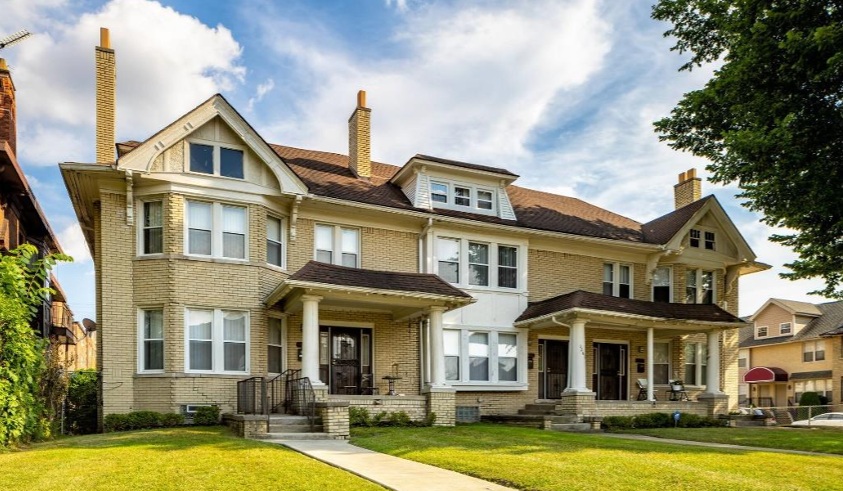
Update: An Op-Ed on the proposed zoning reform was published in Bridge Detroit, written in-part by TRU member Amy Hemmeter!
The City of Detroit is considering a change to zoning regulations which would allow more housing to be built across much of the city.
Restrictions drive up housing costs
Historically, much of Detroit contained a variety of housing: not just single-family homes and large apartment buildings, but a range of types in between.
Older residential neighborhoods still feature many examples of this “missing middle” housing, such as two-family flats, duplexes, and 4-unit “quads.”
Under current Detroit zoning codes, however, it’s very difficult to build more missing middle housing. While older buildings have been “grandfathered in,” it’s now illegal to build new 4-unit buildings, for example, in most of the places where they now exist, which are zoned “R2” for one- and two-unit buildings only.
Housing advocates have pointed out that those regulations artificially constrain the amount of housing available, helping drive up rents. Many Detroit households now pay over half their income in rent.
More flexibility proposed
A new proposal from the City would change zoning policy, allowing more types of housing to be built.
First, the proposal would expand the range of allowable housing types in some areas of the city. For example, 3- and 4-unit buildings would be permitted in areas currently zoned “R2.”
The proposal would also add more flexibility on the sizing and spacing of housing. Instead of requiring a 20-foot setback from the sidewalk, for example, it would require only a 10-foot setback, or whatever setback matches the adjacent homes.
Finally, the proposal would loosen on-site parking requirements for new housing and commercial buildings, recognizing that many Detroit households don’t have a car for every person, and mandatory parking requirements present a significant obstacle for new development.
More housing helps transit
Transportation Riders United strongly supports these proposed changes. Transit works best in more densely developed areas, and as some of these areas gentrify – think Midtown Detroit, for example – it’s important to allow more housing to counter rising costs and put more people closer to frequent transit corridors.
The Detroit City Planning Commission is meeting at 5 pm on Thursday, July 31 for an initial meeting on the proposal. If you’re able, please join us to give public comment on the benefits of rezoning for more housing! You can attend in person at the Coleman A. Young Municipal Center or virtually via Zoom; details are available here. You can also email the City Planning Commission at [email protected].
